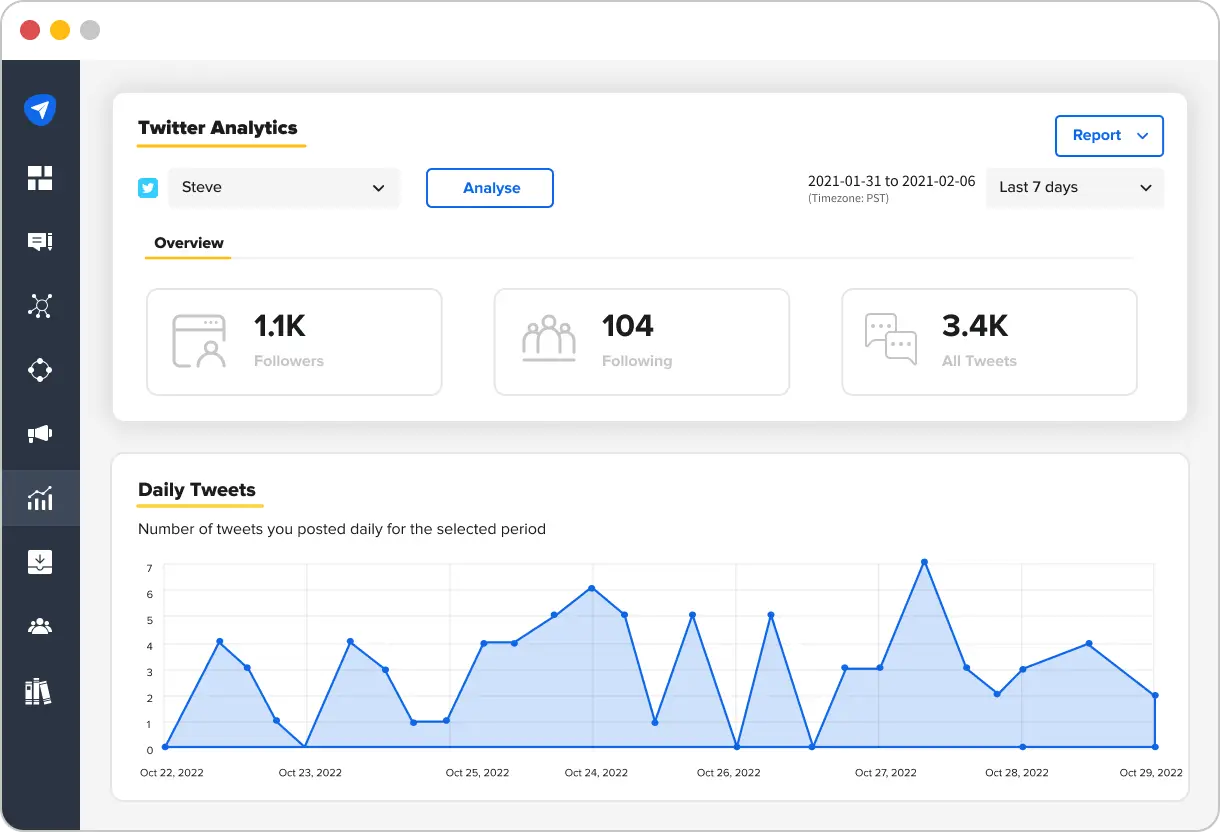More About Social Media Analytics
Recent research by a social media management platform found that 85% of businesses that started tracking social media data as part of their analytics programs could accurately demonstrate the return on their investment.
The entire process of social media analytics starts with data collection. This involves putting together the data from different social media platforms. Marketers and brands are often enabled by the auto-generation of data on various metrics by the platforms, such as reach, impressions, engagement, conversions, follower growth, and audience demographics.
What is social media analytics’ primary benefit?
The insights gained from social media analytics enable a brand or business to finetune and optimize its social media strategies. By understanding what works and what doesn’t on social media channels, marketers can make data-driven decisions to enhance visibility, engagement, reach, and overall performance to stay ahead of the competition.
Let us now look at some key aspects and elements of social media analytics:
1. Social Media Metrics and KPIs
The performance of social media campaigns and content is measured and assessed by tracking key performance indicators (KPIs) and metrics related to user engagement, reach, impressions, click-through rate, conversion rate, and return on investment (ROI), among other relevant indicators, to assess the effectiveness of social media efforts.
By analyzing the performance of different types of content, such as text posts, images, videos, and links, marketers can identify the most engaging and effective content formats and topics that are relevant and resonate with the target audience.
2. Audience Analysis
Social media analytics provides an understanding of your social media audience – their demographics, interests, and behaviors. Marketers can gain insights into followers, their preferences, and how they engage with the brand content. This data set can help develop targeted strategies to reach and engage with the audience more effectively.
3. Sentiment Analysis
Social media analytics tools can analyze and parse social media user comments, mentions, and posts to deliver a fair representation of the overall sentiment and perception of a brand or specific campaigns on various platforms.
The practice, by leveraging natural language processing techniques, helps identify positive and negative sentiments in user-generated content, allowing you to monitor and manage brand reputation and address any issues promptly.
4. Social Media Data Visualization
Data visualization facilitates an easy depiction of complex data in a visually appealing and understandable style. Various data visualization formats are used in social media analytics, including maps, charts, graphs, and dashboards. These reports and visualizations, as provided by various social media analytics tools, are applied in communicating social media insights and make it easier to identify trends, patterns, and focus points.
5. Competitor Analysis
Social media analytics help benchmark your performance against competitors by analyzing their social media efforts, including their strategies, content strategies and performance, social media engagement rates, etc. By analyzing competitor data for these parameters and conducting a sentiment analysis, you can gain insights on optimization and identify areas of improvement and differentiation.
The image below shows the SocialPilot analytics dashboard presenting the analytics for Twitter, with a graph for visualization of daily tweets, among other elements.


